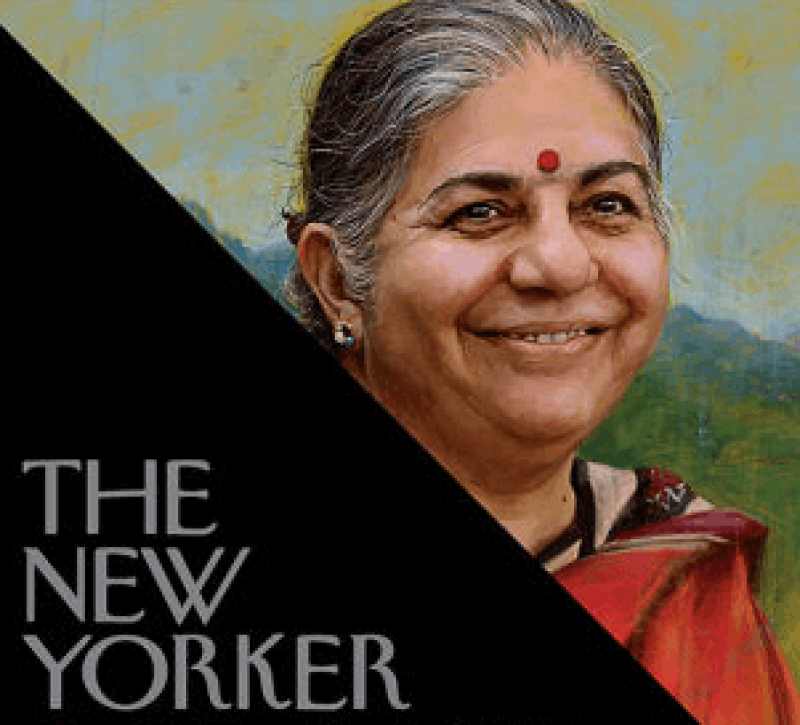I am glad that the future of food is being discussed, and thought about, on farms, in homes, on TV, online and in magazines, especially of The New Yorker’s caliber. The New Yorker has held its content and readership in high regard for so long.
The challenge of feeding a growing population with the added obstacle of climate change is an important issue. Specter’s piece, however, is poor journalism. I wonder why a journalist who has been Bureau Chief in Moscow for The New York Times and Bureau Chief in New York for the Washington Post, and clearly is an experienced reporter, would submit such a misleading piece. Or why The New Yorker would allow it to be published as honest reporting, with so many fraudulent assertions and deliberate attempts to skew reality.
‘Seeds of Doubt’ contains many lies and inaccuracies that range from the mundane (we never met in a café but in the lobby of my hotel where I had just arrived from India to attend a High Level Round Table for the post 2015 SDGs of the UN) to grave fallacies that affect people’s lives. The piece has now become fodder for the social media supporting the Biotech Industry.
Could it be that rather than serious journalism, the article was intended as a means to strengthen the biotechnology industry’s push to ‘engage consumers’? Although creative license is part of the art of writing, Michael Specter cleverly takes it to another level, by assuming a very clear position without spelling it out.
Character assassination has always been a tool used by those who cannot successfully defend their message. Although they think such slander will destroy my career, they don’t understand that I consciously gave up a ‘career’ in 1982 for a life of service. The spirit of service inspired by the truth, conscience and compassion cannot be stopped by threats or media attacks. For me, science has always been about service, not servitude.
My life of science is about creativity and seeing connections, not about mechanistic thought and manipulated facts.
Read full original article: Seeds of Truth — A response to The New Yorker































